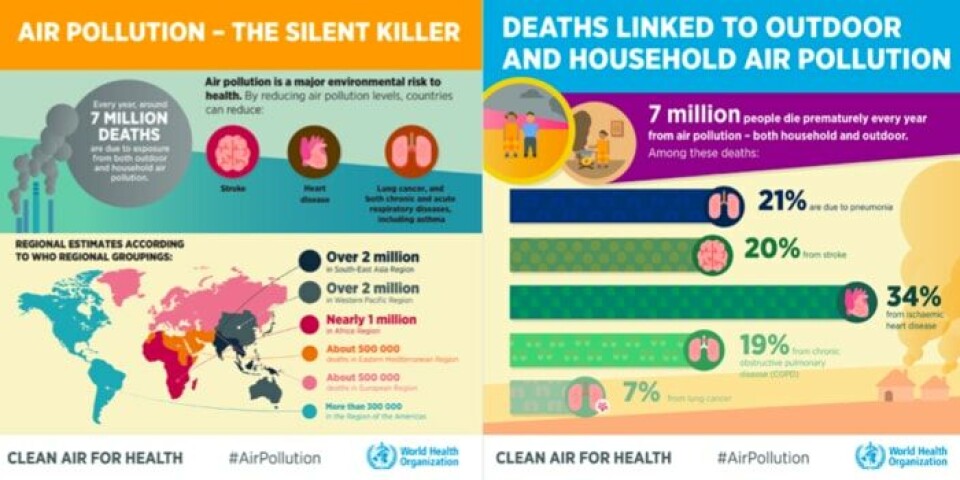Copyright : Re-publication of this article is authorised only in the following circumstances; the writer and Africa Legal are both recognised as the author and the website address www.africa-legal.com and original article link are back linked. Re-publication without both must be preauthorised by contacting editor@africa-legal.com
Where Birdsong is Back

Amid the cycle of death, illness and widespread anxiety due to Covid-19, there may be some brief but tangible environmental and human health benefits as the pandemic rolls inexorably deeper into Africa. Tony Carnie reports.
Some of the most polluted big cities and industrial regions in Africa can expect a temporary but measurable drop in dangerous levels of air pollution as more governments impose Covid-19 lockdowns, curfews and movement restrictions.
This may be cold comfort to citizens contemplating the death of loved ones and the spectre of food shortages or crippling job losses, but air pollution is nevertheless a major “silent killer”.
According to the World Health Organisation, outdoor and household air pollution cause about seven million premature deaths globally every year, largely as a result of higher mortality from stroke, heart disease, lung cancer and acute respiratory infections.
More than half of these deaths are due to outdoor air pollution, mostly generated by traffic exhaust fumes, power stations, factory fumes or burning fossil fuels and waste products.
While Africa remains less industrialised than many other continents, the WHO nevertheless estimates that more than one million people die prematurely here every year due to outdoor and indoor air pollution.
So far, very little data has been collated or analysed on post-Covid air pollution readings in Africa, but the lockdowns and movement restrictions imposed by several nations can be expected to bring significant and measurable decreases in certain types of outdoor air pollution – most noticeably from fewer exhaust fumes from cars, aeroplanes, taxis and motorbikes in major cities such as Johannesburg, Cairo and Lagos.
South Africa, the most industrialised nation on the continent, produces most of its electrical power by burning coal and these emissions may not decline markedly during the country’s 21-day lockdown. However, several SA mining companies and other industries have either shut down or gone into maintenance mode and inner-city traffic fumes have already declined dramatically.
Benjamin Obidegwu, managing partner of the Lagos-based commercial law firm Hermon Barristers and Solicitors, said: “I woke up in a different Lagos this morning - something I have not witnessed in my almost 30-year sojourn in this very bubbly and vibrant city. Yes, Lagos is in total lock down.”
Obidegwu said the information he received on the first day of the lockdown via TV, social media and relatives indicates that most roads are deserted apart from essential services and emergency vehicles.
Rico Euripidou, an epidemiologist and pollution researcher from the South African environmental group groundWork , says the national lockdown provides an ideal opportunity for scientists to research local air pollution and health impacts.
“There have been massive drops in pollution levels in China and Northern Italy as the Covid-19 epidemic has unfolded over the past three months and we might expect to see some similarities here,” he said.
There have been other, less tangible, environmental benefits due to Covid – including much less noise in major cities and towns, while night-time light pollution will also decline as people abandon office blocks or take to their beds earlier.
However, the pandemic is having a massive impact on tourism to Africa – especially wildlife and nature-based tourism. Several reserves, including the world-famous Kruger National Park, have been forced to close (either due to mandatory bans or cancellations from foreign visitors) and this loss of revenue will put further strain on their limited budgets and ability to tackle the poaching of rhinos, elephants and other wildlife in an era in which conservation relies increasingly on visitor funding rather than government subsidies.
China’s temporary ban on the trade in wildlife products after preliminary scientific reports linking Covid-19 to the illegal poaching of pangolins has raised some hope – but it remains to be seen whether this translates into tougher enforcement or lasting protection for Africa’s increasingly exploited wildlife treasures.
Yet, amid the general air of gloom and fear, some people are celebrating the positives.
Commenting on Facebook this week, conservationist Mike Bouwer rejoiced over the major increase in birdsong in his home village of St Lucia, while colleagues from the Kruger National Park reported that they had never seen the animals looking so bemused: “They stand around wondering where all the cars, people and noise pollution have gone!”
To join Africa Legal's mailing list please click here
